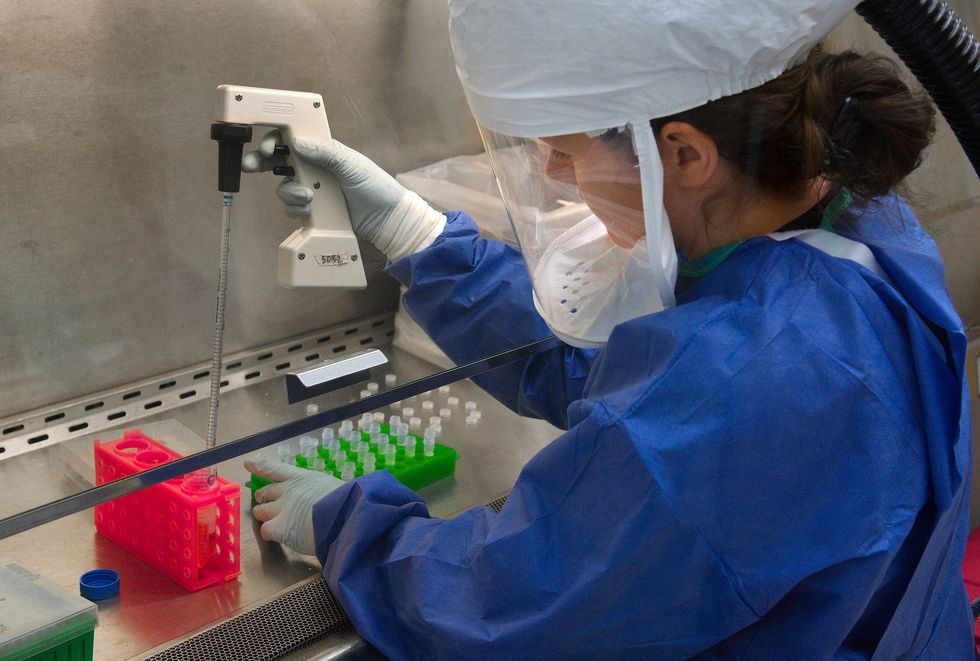To those who innovate, groundbreaking is their work, so any new inventions are seen as beneficial even when there are negatives that must be considered. This is not to say that innovation is bad, but rather certain considerations that are necessary can be overlooked.
I can recognize this. I want to be an engineer and make new tools that could help society as a whole, but there are consequences for everything. Medicine is one of the most important industries where innovations can have the most direct impact on society. Medicines can be revolutionary for patients, yet the process of drug development and approval is long and expensive. Because while a drug could cure cancer, it could also easily kill with the wrong dose. The same idea goes for personalized medicine.
Many people are aware of the services provided by Ancestry DNA and similar and how it examines your DNA. As said on their website, technology that is fairly recent is used, an autosomal assay that can assess up to 700,000 locations in your DNA, can be digitized for their research and your eventual product. This will not stop at simple ancestry testing, as the field of pharmacogenomics is an increasingly viable pursuit for pharmaceutical companies. Pharmacogenomics, or personalized medicine, is the idea that your DNA can be used to tailor medications based on what your body can handle.
In theory, this sounds ideal. You send in a sample, it gets analyzed and compared to medicines that will treat your ailment, which is then analyzed to find an ideal dosage for your body. It could minimize side effects and overall have a greater efficiency in treatment, as it works hand in hand with your DNA.
I had previously attended a week-long immersion program for teachers about biotechnology, and a representative from a pharmaceutical company was there. They had mentioned pharmacogenomics and were super excited about the prospects it could hold for the company and the patients they serve. However, the teachers and others in the room were quick to point out errors in the logic.
After all, drugs can take around 10 years to go through just clinical trials, which does not account for all parts of drug development. Many were concerned with the potential costs of personalized medicine and how manufacturing could prove difficult. None of this has been implemented yet, so it is hard to see what the outcome could be the economic factor of this.
This still avoids the ethical issues surrounding DNA and personalized medicine.
It's easy to see that without proper regulation, personalized medicine will prove invasive to the lives of the people who use it. Imagine that your entire genome was on a computer, matched with your name and sensitive healthcare information. This would be legal, as it would be a part of your healthcare records which are legally protected documents that your healthcare providers own. Regulations on your doctor will prove sufficient on that end, but for pharmaceutical companies (along with companies aforementioned), it could be different.
These companies have fewer restrictions around them, and if innovation goes fast enough regulators will have trouble keeping up, leaving the consumer (who can also be a patient) vulnerable to attacks on their information. This applies to companies that are not pharmaceutical, as they do not have the same regulations placed on them as the healthcare sector.
Technically, depending on its use, DNA can be classified as protected health information as defined in HIPAA or the Health Insurance Portability and Accountability Act. Data should then be more secure in a pharmaceutical company than an ancestry testing company, even though both hold crucial information about users and their health. When you think about it, some services offered by testing companies offer to screen you for certain diseases and determine the probability of developing that disease. While not accurate completely, this is not information that would be easily revealed in a healthcare setting, as patient information is to be kept private at all times.
Pharmaceutical companies can have this issue as well because traditionally, doctors prescribe based on what they know about their patient and their tests. Personalized medicine requires data from the patient to the pharmaceutical company so that the company can manufacture prescriptions tailor made to the patient. This spreads patient information even more which leads to issues with security that companies will have to deal with. Improperly protected data, especially health data, can show cracks in the ethics of any company, healthcare or not. Patients need to know this information, but once its out of their hands, many problems will to arise.
















